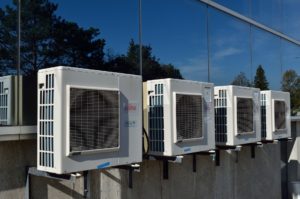 Time is running out! The US must make a decision on a key climate agreement that aims to reduce emissions of global warming-causing HFC’s. Industry leaders are doing what they can to convince Trump that ratifying the
Time is running out! The US must make a decision on a key climate agreement that aims to reduce emissions of global warming-causing HFC’s. Industry leaders are doing what they can to convince Trump that ratifying the
Kigali Amendment will create American jobs and benefit the US as a whole.
Trump’s decision will create one of two scenarios. If he chooses to ratify, the U.S. can remain a world innovator in HVACR technology. In this scenario, the US will continue the path to a low-GWP future by allowing manufacturers to create sustainable, efficient equipment, and contractors will continue to install world-leading technology.
The alternative is not to ratify the Kigali Amendment. This creates a future where the U.S. gets out of step with the rest of the global market. In this scenario, U.S. manufacturers have to serve a domestic market with one type of equipment and the growing global market with another. Even worse, as we are already seeing, some states will decide to forger ahead on their own, creating multiple mini-markets that are impossible to satisfy. Smaller U.S. manufacturers will disappear and larger ones will lose much of their share of the global market.
A new report from AHRI and the Alliance for Responsible Atmospheric Policy, whose members include large US companies like Dow and Carrier, argues that the deal will “strengthen America’s exports and weaken the market for imported products”.
“Without Kigali ratification, growth opportunities will be lost along with the jobs to support that growth, the trade deficit will grow, and the US share of global export markets will decline,” the report says.
The report estimates the US would gain a total of 33,000 additional jobs by 2027 and 12.5 billion in annual economic output solely because of ratifying the deal. The report also states that US exports of products using refrigerants—such as HVACR equipment—are projected to fall as a share of the global market unless the Kigali Amendment is ratified. If it is, the US share of the global market will increase from 7.2 to 9.0%, helping reduce the overall trade deficit.
The amendment, already signed by 31 countries, will go into international force on January 1, 2019. In order to ratify, the US requires 67 Senate votes after the administration sends it to the upper chamber for their consideration. The result will impact all parts of the HVACR delivery channel: manufacturers, wholesalers, contractors, and users.
Now is the time to ratify. In the U.S., some states, such as California, are already transitioning to new, low-GWP technologies. Internationally, developing countries are quickly moving away from HCFCs. These countries, representing more than $1 trillion in HVACR sales in the next decade, are looking to see how their future technology needs can be met. In order to stay competitive in international markets, the US must ratify the Kigali Amendment now.
If the US does not follow the Kigali Amendment, they will quickly find themselves out of sync with the rest of the developed world. The US would be unable to sell equipment even into Canada, as it would not meet their evolving standards. States like California and others, who are following their own rules to move away from HFCs, would look elsewhere for the equipment they need. Either that, or U.S. manufacturers would have the complicated challenge of supplying equipment for those states moving ahead with a phasedown and a different line of equipment for all others.
FIELDBOSS stays current on industry trends to keep you informed on what’s happening in the HVACR world. Read our blog and sign up for our newsletter for all the latest news.
#KigaliAmendmentMontrealProtocolHVACRegulationsHFCPhaseout